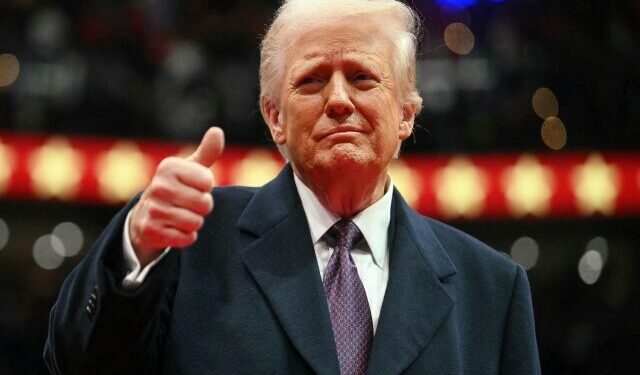President Donald Trump has taken decisive action to safeguard American interests by shutting down trade exemptions for China and Hong Kong. This bold move, part of a sweeping executive order imposing tariffs on multiple nations, directly targets deceptive shipping practices that have long undermined U.S. trade laws.
For years, China has exploited the “duty-free de minimis” loophole, which allowed shipments valued at $800 or less to enter the United States without import duties or taxes. The Trump administration uncovered how the Chinese Communist Party (CCP) and Hong Kong traders manipulated this exemption by breaking large shipments into smaller parcels—evading scrutiny and, in many cases, smuggling illicit substances like fentanyl into the country. By closing this loophole, Trump is taking a major step to cut off the flow of dangerous drugs fueling America’s opioid crisis.
This crackdown is part of Trump’s broader strategy to end unfair trade practices, known as “Liberation Day.” The plan aims to correct trade imbalances that have crippled American businesses for decades. Breitbart economics reporter John Carney praised the move, highlighting the long-standing disadvantages the U.S. has faced in global trade.
“Consider Europe’s VAT regime. A German automaker exporting a car to the U.S. does so tax-free—thanks to a VAT rebate. Meanwhile, an American automaker shipping a car to Europe pays embedded U.S. taxes and a European VAT upon entry. One enjoys a de facto export subsidy, while the other faces a tax wall,” Carney noted. “The WTO, in its infinite wisdom, allows this disparity and has repeatedly blocked American attempts to address it through legal or tax-code innovations.”
Trump’s crackdown on China’s abuse of trade exemptions goes beyond economics—it’s about saving American lives. China remains a primary source of fentanyl and other deadly opioids that have devastated communities across the U.S. By shutting down the de minimis loophole, Trump is taking direct action to curb the illicit drug trade while putting economic pressure on China.
Trump’s tough stance on trade isn’t just shutting down illicit imports—it’s also revitalizing American manufacturing. This week, General Motors (GM) announced plans to expand production at its Fort Wayne Assembly Plant in Indiana, thanks to Trump’s 25 percent tariffs on foreign-made cars. The automaker is set to increase production of light-duty trucks, adding overtime shifts and hiring several hundred temporary workers to meet demand.
The move has drawn praise from the United Auto Workers (UAW), which has long called for an end to the disastrous free trade policies that gutted American jobs. UAW President Shawn Fain applauded Trump’s tariffs, calling them a historic step toward protecting U.S. auto workers.
“We applaud the Trump administration for stepping up to end the free trade disaster that has devastated working-class communities for decades,” Fain said. “Ending the race to the bottom in the auto industry starts with fixing our broken trade deals, and the Trump administration has made history with today’s actions.”
With these new measures in place, China and Hong Kong will no longer have free rein to exploit America’s trade system. Trump’s commitment to fair trade continues to reshape global commerce, proving once again that his administration prioritizes American workers, businesses, and national security.
As the fight against unfair trade and illicit imports intensifies, one thing remains clear: President Trump is leading the charge to put America first.




















